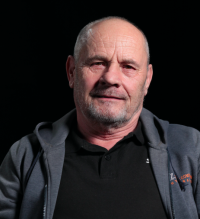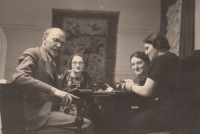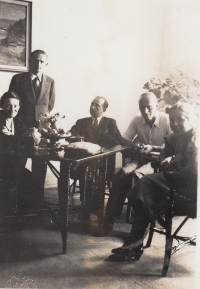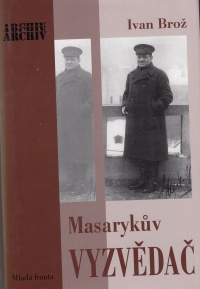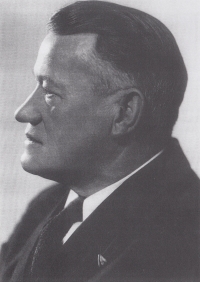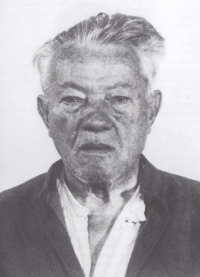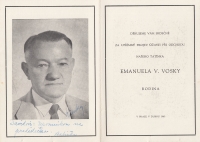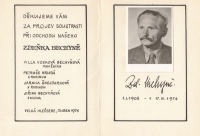Leopoldov, Mírov, Valdice, Jáchymov, Bytíz, Ruzyně. Everywhere we went to visit
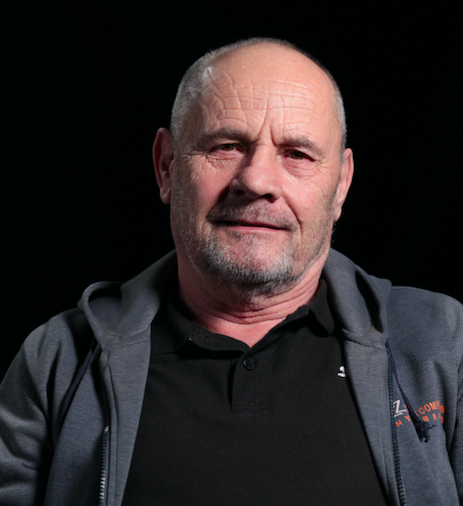
Download image
David Piálek comes from a family whose members were at the birth of the Czechoslovak Republic and put their lives on the line for it. His great-grandfather, Emanuel Viktor Voska, worked for the US intelligence services during the First and Second World War and in 1918 arranged a meeting between Tomáš Garrigue Masaryk and US President Woodrow Wilson, which was a prerequisite for the US to recognise Czechoslovakia as a state. Rudolf Bechyně’s second great-grandfather was Minister of Education, Railways and Supply during the First Republic, and served in London as a member of the Czechoslovak Council of State during World War II. After 1948, when the Communists took over the government, many members of David Piálek’s family were imprisoned for political reasons. He himself was born on 13 February 1952 in Chomutov, the son of Petrusha, née Bechyňová, and František Piálek from Stará Říše in the Třebíč region. He grew up in Klášterec nad Ohří, Kraslice and Mariánské Lázně. While attending primary school, he was often stigmatized as a “problem” pupil for political reasons. Between 1967 and 1970 he trained as a carpenter in Domažlice. He successfully passed the entrance exams for secondary school, but was not accepted for political reasons. He worked as a stoker and professional driver, lived in Domažlice and in Zlín (then Gottwaldov). After 1989, he continued his family tradition and participated in the revival of the Czechoslovak Social Democracy, but after Miloš Zeman became the party’s chairman, he perceived that its direction no longer corresponded to its original ideals and left the party. In the 1990s, his family restituted the farm and dairy building that his grandparents Zdeněk and Villa Bechyň built in Brody, West Bohemia. Now (2024) he lives not far from there in the village of Chyše.
